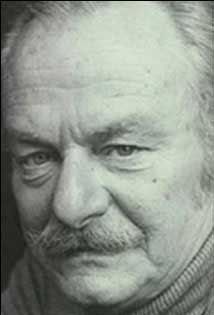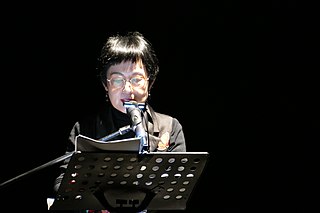Efe Murad | |
|---|---|
 | |
| Born | Efe Murat Balıkçıoğlu Istanbul, Turkey |
| Occupation | Poet, professor |
| Nationality | Turkish |
| Alma mater | Princeton University Harvard University |
Efe Murad is a Turkish poet, translator, and historian.
Efe Murad | |
|---|---|
 | |
| Born | Efe Murat Balıkçıoğlu Istanbul, Turkey |
| Occupation | Poet, professor |
| Nationality | Turkish |
| Alma mater | Princeton University Harvard University |
Efe Murad is a Turkish poet, translator, and historian.
Born and raised in Istanbul, Turkey, Efe Murad studied philosophy at Princeton University and completed his PhD in Ottoman History and Arabic Philosophy at Harvard University. [1] Together with Cem Kurtuluş, he wrote the Matter-Poetry Manifesto in 2004. During his senior year at Robert College, he received the gold medal in the International Philosophy Olympiad, which was organized in Cosenza, Italy in 2006.
He is the author of six books of poetry and the translator of ten more, including the first complete translation of Ezra Pound’s Cantos into Turkish; [2] volumes by the American poets Susan Howe, Lyn Hejinian, and C. K. Williams, the German author Thomas Bernhard, as well as the Iranian poets Mahmoud Mosharraf Azad Tehrani and Fereydoon Moshiri. Together with the American poet and translator Sidney Wade, [3] he co-translated a collection of poems by the Turkish modernist Melih Cevdet Anday under the title Silent Stones (Talisman Press, 2017), [4] which was awarded "the Meral Divitçi Prize for Turkish Poetry in Translation." His poems, writings and translations in English have appeared in a wide range of journals including The American Reader, Five Points, Denver Quarterly, Guernica, [5] Critical Flame, [6] Turkish Poetry Today, Poet Lore, Asymptote, [7] Jacket2, [8] [9] and Two Lines, and exhibitions including the 13th Istanbul Biennial. [10] [11] In 2021, he published a volume of memoristic essay, The Pleasures of Empty Lots, which concerns the culture of flaneurship and the rise of authoritarianism in his hometown Istanbul. [12] His bilingual book of poetry, Breaking of Symmetry/Simetrinin Kırılması, a collaboration with the Harvard University quantum physics researcher Dr. Sina Zeytinoğlu and poet-artist Sevinç Çalhanoğlu came out in a special edition of 400, funded by the European Union Grant Scheme for Common Cultural Heritage, as well as Turkey’s Aşina Project. [13] According to the description included in the book, Murad recorded various conversations with Dr. Zeytinoğlu about his research on symmetry breakings and phase transitions. Having transcribed these recorded conversations, Murad chiseled Dr. Zeytinoğlu’s words into poetry by mixing them with corresponding contexts in Islamic philosophy and Sufism.
A scholar of Ottoman history and Islamic philosophy, he taught history, religion, and writing at Wellesley College [14] for four years, and he is currently serving as a faculty fellow in Islamic history at New York University’s Department of Middle Eastern and Islamic Studies. His ongoing practice melds paleography, found footage, soundscapes, and mystical experience in poetry. An Organ of Quality, a cycle of poems will be published by Bored Wolves Press in 2024.

Yunus Emre also known as Derviş Yûnus (1238–1320) was a Turkish folk poet and Sufi who greatly influenced Turkish culture. He wrote in Old Anatolian Turkish. His name, Yûnus, is the Arabic equivalent to the English name Jonah. The UNESCO General Conference unanimously passed a resolution declaring 1991 the 750th anniversary of the poet's birth, International Yunus Emre Year.
Turkish literature comprises oral compositions and written texts in the Turkish language. The Ottoman form of Turkish, which forms the basis of much of the written corpus, was highly influenced by Persian and Arabic literature, and used the Ottoman Turkish alphabet.

Orhan Veli Kanık or Orhan Veli was a Turkish poet. Kanık is one of the founders of the Garip Movement together with Oktay Rıfat and Melih Cevdet. Aiming to fundamentally transform traditional form in Turkish poetry, he introduced colloquialisms into the poetic language. Besides his poetry, Kanık crammed a large volume of works including essays, articles and translations into just 36 years.
Seyhan Erözçelik was a Turkish poet.

Hakim Abul-Majd Majdūd ibn Ādam Sanā'ī Ghaznavi, more commonly known as Sanai, was a poet from Ghazni who wrote in Persian. He lived his life in the Ghaznavid Empire which is now located in Afghanistan. He was born in 1080 and died between 1131 and 1141.

Talât Sait Halman, GBE was a Turkish poet, translator and cultural historian. He was the first Minister of Culture of Turkey. From 1998 onward, he taught at Bilkent University as the dean of the Faculty of Humanities and Letters.
Daniele Pantano is a poet, essayist, literary translator, artist, editor, and scholar. He was born in Langenthal, Switzerland, of Sicilian and German parentage. Pantano holds degrees in philosophy, literature, and creative writing. His poems have been translated into several languages, including Albanian, Arabic, Bulgarian, French, German, Italian, Kurdish, Slovenian, Persian, Russian, and Spanish. He is the former American editor of Härter, a prominent German literary magazine; co-editor of em: a review of text and image; publisher/faculty advisor of the Black Market Review; translations editor of The Adirondack Review, and editor of Saw Palm: Florida Literature and Art, Poems Niederngasse, and The M.A.G. Pantano curates The Abandoned Playground,TAP Editions, and is founding Director of the Refugee Poetry Project and Co-Director of the International Refugee Poetry Network. Pantano divides his time between Switzerland, the United States, and England. He has taught at the University of South Florida, where he also served as Director of the Writing Center, and, as visiting poet-in-residence, at Florida Southern College. In 2008, he joined the staff of Edge Hill University, England, as Senior Lecturer in Creative Writing and Programme Leader of the BA Creative Writing. In 2012, he was promoted to Reader in Poetry and Literary Translation. Pantano currently teaches at the University of Lincoln, where he is Associate Professor in Creative Writing and Programme Leader for the MA Creative Writing.
Edip Cansever was a Second New Movement Turkish poet. Talât Sait Halman referred to Cansever as in the light of surrealist Asaf Halet Celebi and Orhan Sarıkaya characterized him as a nonconformist.

Saadi Youssef was an Iraqi author, poet, journalist, publisher, and political activist. He published thirty volumes of poetry in addition to seven books of prose.
Daniel Ladinsky is an American poet and interpreter of mystical poetry, born and raised in St. Louis, Missouri. Over a twenty-year period, beginning in 1978, he spent extensive time in a spiritual community at Meherabad, in western India, where he worked in a rural clinic free to the poor, and lived with the intimate disciples and family of Meher Baba.
There were a number of poetic trends in the poetry of Turkey in the early years of the Republic of Turkey. Authors such as Ahmed Hâşim and Yahyâ Kemâl Beyatlı (1884–1958) continued to write important formal verse whose language was, to a great extent, a continuation of the late Ottoman tradition. By far the majority of the poetry of the time, however, was in the tradition of the folk-inspired "syllabist" movement, which had emerged from the National Literature movement and which tended to express patriotic themes couched in the syllabic meter associated with Turkish folk poetry.
Ali Oktay Rifat, better known as Oktay Rifat, was a Turkish writer and playwright, and one of the forefront poets of modern Turkish poetry since the late 1930s. He was the founder of the Garip movement, together with Orhan Veli and Melih Cevdet.

Melih Cevdet Anday was a Turkish writer whose poetry stands outside the traditional literary movements. He also wrote in many other genres which, over six and a half decades, included eleven collections of poems, eight plays, eight novels, fifteen collections of essays, several of which won major literary awards. He also translated several books from diverse languages into Turkish.
Sidney Wade is an American poet. She currently holds the position of Professor of creative writing at the University of Florida, where she has taught since 1993.
The time that can be called contemporary in Turkish literature falls in the period between the middle of the 20th century and the first years of the new millennium. Throughout this period many changes in literary discourse have occurred. Together with the fall of the Ottoman Empire and foundation of the Turkish Republic brought a different way to Turkish literature together with the effect of Westernization on Turkish writers. The literature of the new republic emerged largely from the pre-independence National Literature movement, with its roots simultaneously in the Turkish folk tradition and in the Western notion of progress. One important change to Turkish literature was enacted in 1928, when Mustafa Kemal initiated the creation and dissemination of a modified version of the Latin alphabet to replace the Arabic-based Ottoman script. Over time, this change—together with changes in Turkey's system of education— would lead to more widespread literacy in the country. In 1950s, Turkish authors started to write in the tone of their western contemporaries bringing a new sense of literature to the country.

Kim Hyesoon (Korean: 김혜순) is a South Korean poet.
Tülay German is a Turkish female singer, currently living in France. She is known for her modern interpretations of Turkish folk music.
Erol Güney was a Turkish-Israeli journalist, translator and author. He is known for translating Western classics into Turkish in the 1940s, including those of Fyodor Dostoyevsky, Anton Chekhov and Molière. He was deported from Turkey in the 1950s due to an article that he wrote about the Soviet Union and emigrated to Israel in 1956, where he lived until his death in 2009.
Derman İskender Över, also known as Küçük İskender, was a Turkish poet, critic and actor.
Ülkü Tamer, was a Turkish poet, journalist, actor and translator.